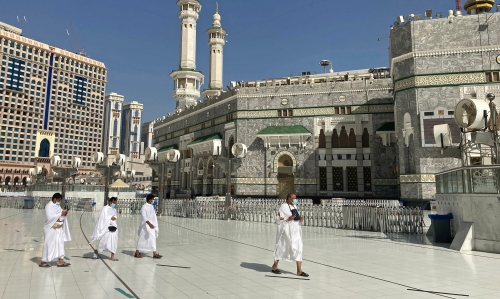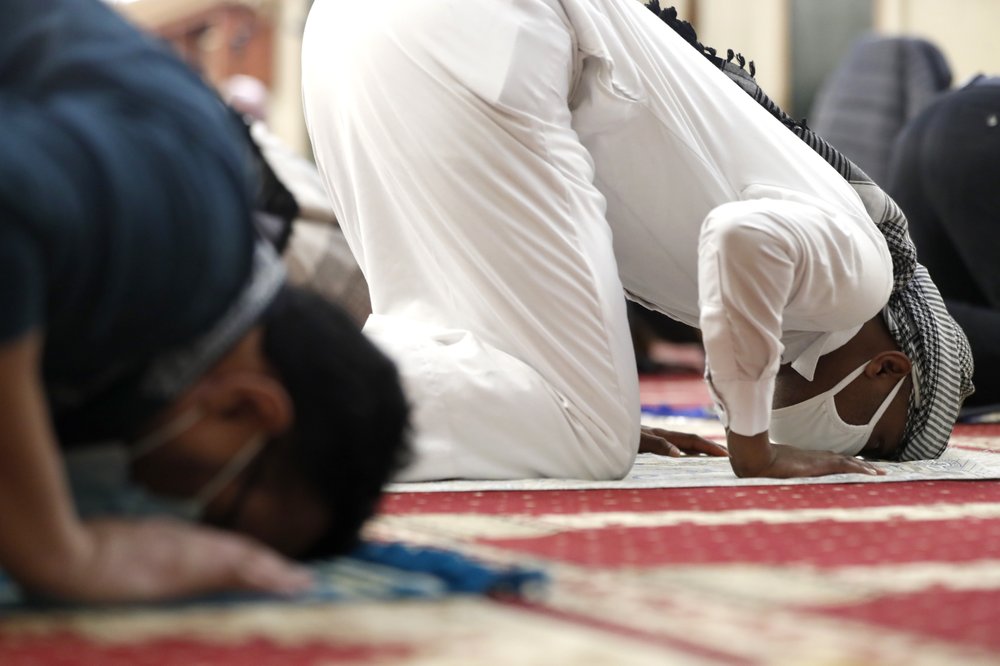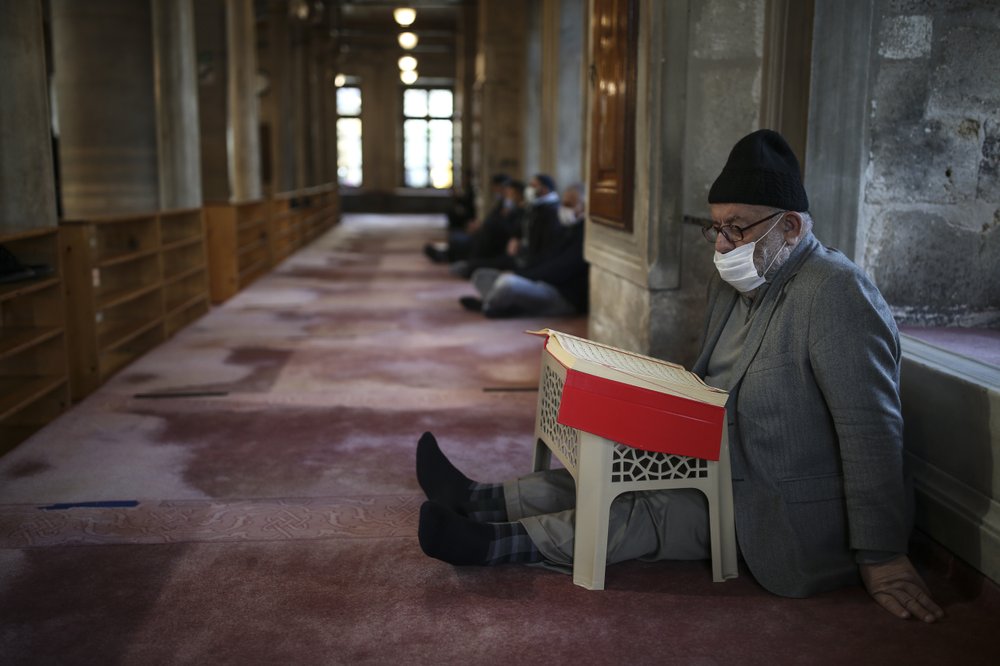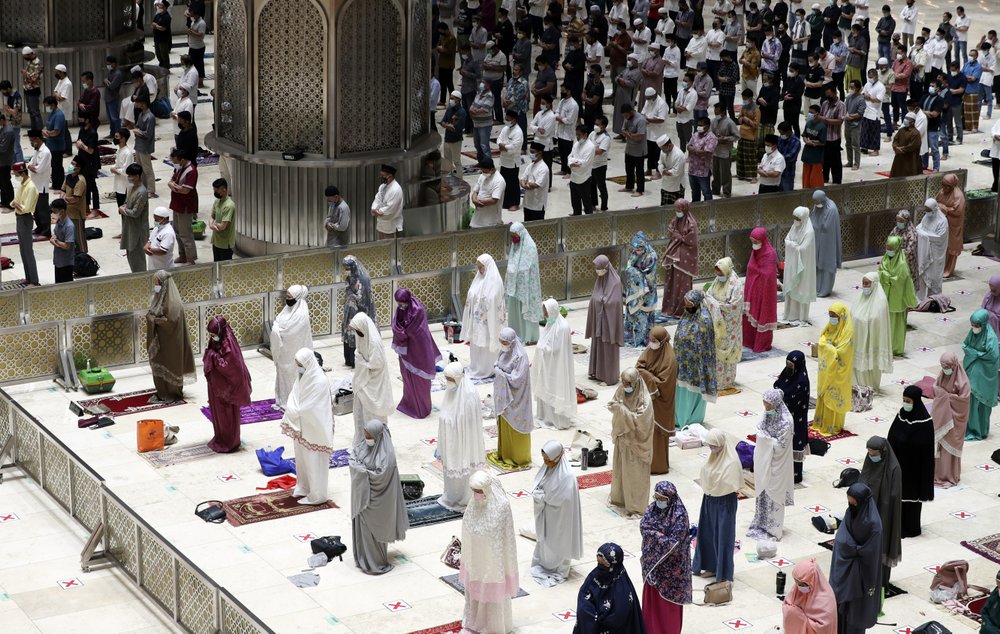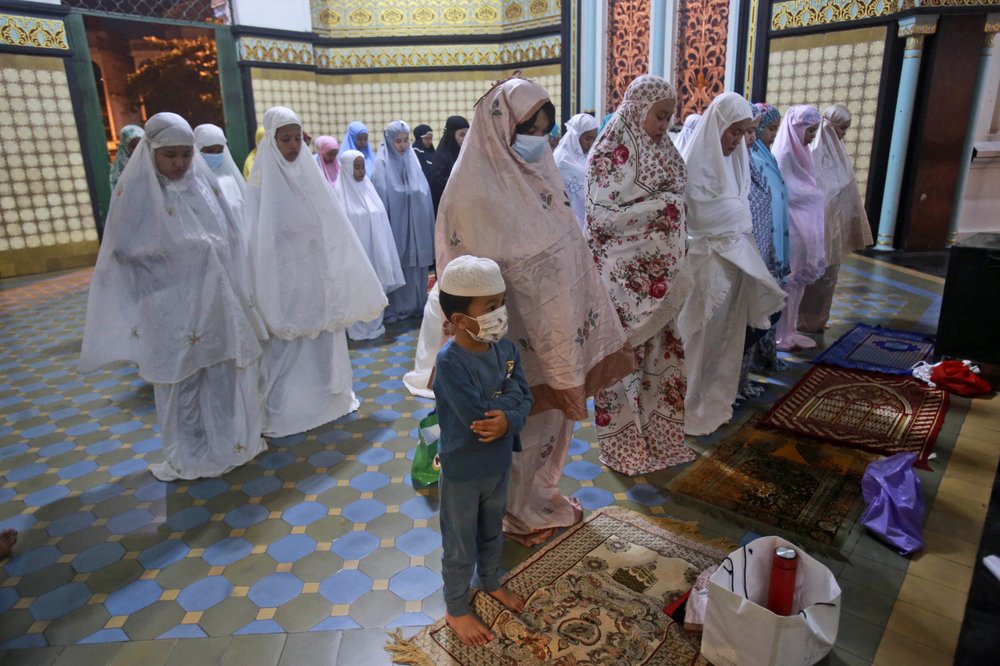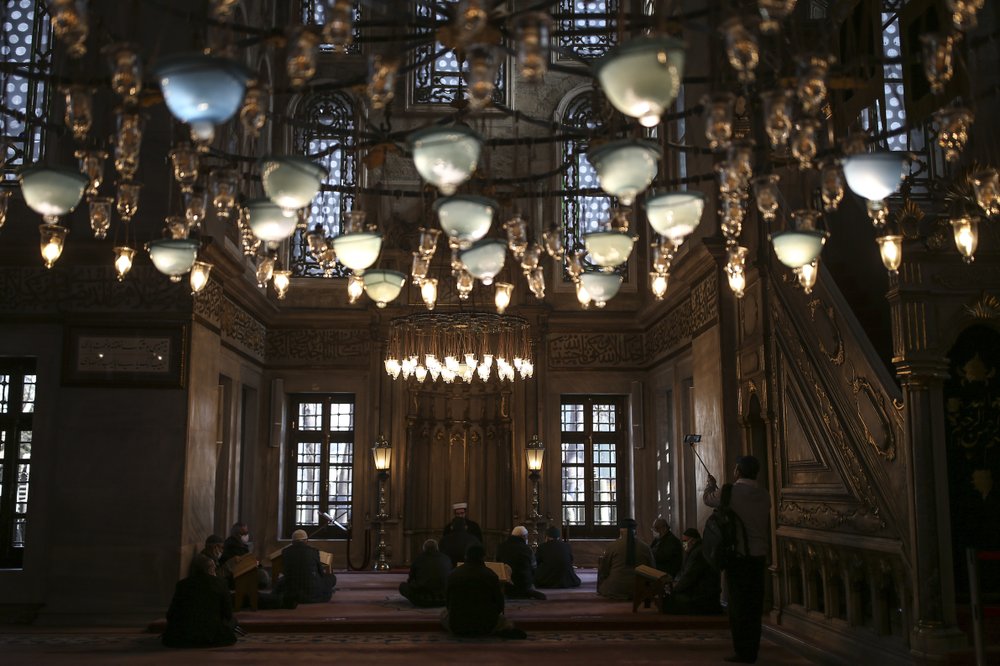Ramadan amid virus surge and renewed curbs
AP | Riyadh
The Daily Tribune – www.newsofbahrain.com
Muslims in many parts of the world marked the start of Ramadan on Tuesday, but a spike in coronavirus cases in several countries has once again put curbs on the holy month’s signature feasts and lengthy prayers in mosques.
Still, there are glimmers that Ramadan 2021 could feel less restricted than last year when Islam’s holiest period coincided with the start of the coronavirus pandemic.
Mosques have since reopened and limits on movement have eased as vaccine rollouts continue in Muslim-majority nations. Clerics in such places as Indonesia have issued assurances the vaccine does not break one’s daytime fast.
Ramadan is marked by longer prayers, dawn-to-dusk fasting and nightly feasts with family and friends, though crowded shoulder-to-shoulder gatherings in mosques and large gatherings for meals remain prohibited due to the continued spread of coronavirus globally.
In Mecca, home to the Kaaba - Islam’s most sacred site - Muslims performed socially distanced “Taraweeh” prayers, marking the start of Ramadan.
Only limited numbers of worshippers are being allowed inside the Grand Mosque that houses the Kaaba in an effort to prevent the spread of the virus.
Saudi authorities are only allowing individuals who’ve been vaccinated or recently recovered from the virus to perform Taraweeh prayers at the Kaaba.
In Iraq, a curfew will remain in place from 7 pm to 5 am throughout Ramadan, with a total lockdown on weekends. The Health Ministry warned that non-compliance with these measures could lead to three-day continuous lockdowns.
Citing economic concerns for business owners, restaurants and pastry shops will be able to operate but solely through home deliveries. In Indonesia, COVID-19 cases are also spiking.
Mosques are being allowed to open for Ramadan prayers with strict protocols in place. The government will allow people to hold “iftar” gatherings during Ramadan in restaurants, malls and cafes, which can open at 50% capacity.
Iftar is the sought-after moment when Muslims traditionally break their daylong fast by eating dates and taking a sip of water before feasting with friends and family. “Easing restrictions is like a breath of fresh air for us who are tired by this COVID-19 outbreak,” said Anna Mardyastuti, a resident in Indonesia’s capital of Jakarta.
“Yes, they should act to stop the virus, but not block the door to worship or change our tradition of Ramadan entirely.” In neighbouring Muslim-majority Malaysia, Wan Noradriana Balqis, 21, welcomed the return of community prayers in mosques but said she will avoid busy Ramadan bazaars. Coronavirus cases in Malaysia have more than tripled since January.
“I don’t think it’s a good idea to reopen the bazaars. The rules are there but many people don’t follow them,” the database administrative officer said.
In India, where infections have peaked in recent days, scholars are appealing to the country’s 200 million Muslims to follow anti-virus protocols and refrain from large gatherings. Many Indian cities dealing with virus surges have imposed nighttime curfews.
The government of Prime Minister Imran Khan has refused to close mosques in Pakistan, even as new infections reach levels similar to the start of the pandemic.
Mosque leaders are entrusted with ensuring no one over 50 years old enters and that social distancing is maintained, but rarely do adherents follow these restrictions.
And in Egypt, the government prevented mosques from serving free meals during Ramadan and banned traditional charitable iftars that would bring together strangers at long tables.
A man bows during an evening prayer at Chicago’s Muslim Community Center
People pray at the Eyup Sultan Mosque, in Istanbul
Indonesian Muslims pray spaced apart as they practice social distancing to curb the spread of the new coronavirus during an evening prayer
Muslim women perform an evening prayer at Al Mashun Great Mosque in Medan, North Sumatra, Indonesia
People pray at the Eyup Sultan Mosque, in Istanbul
Related Posts

